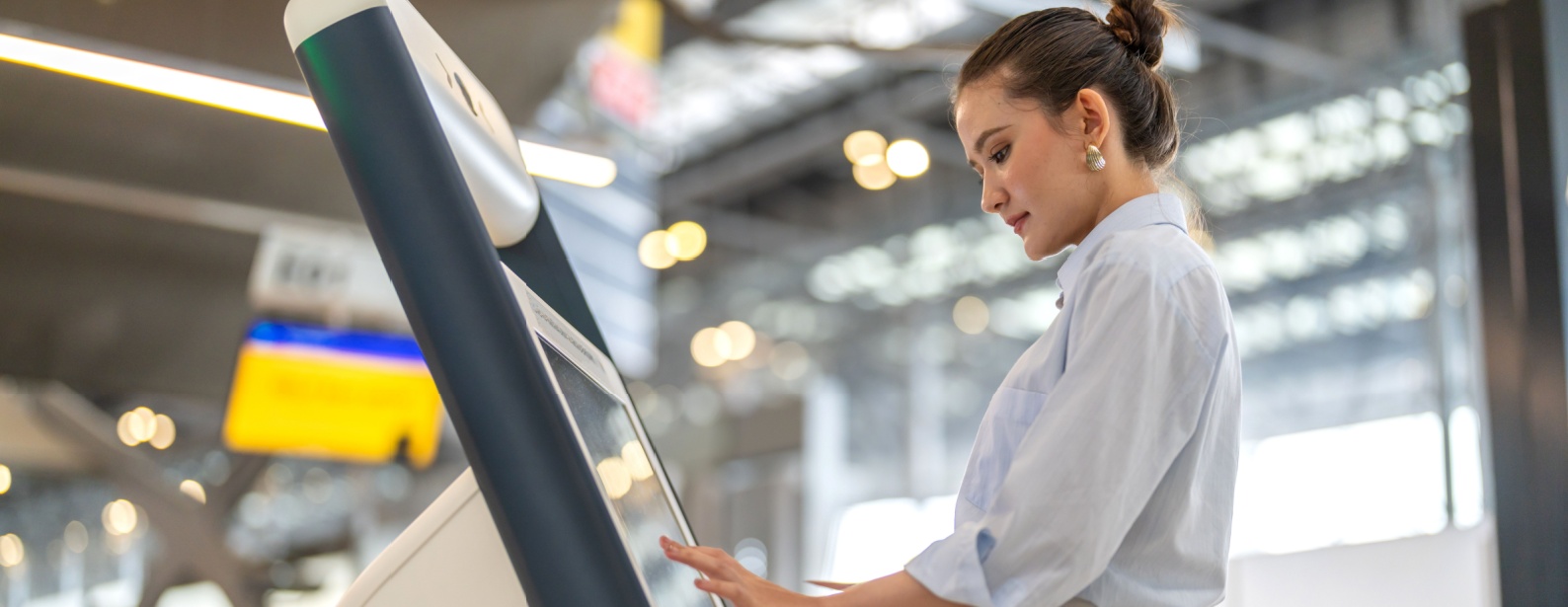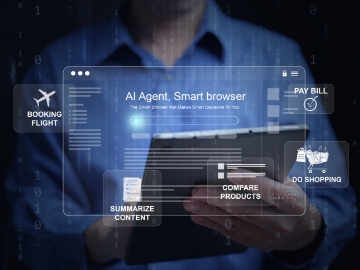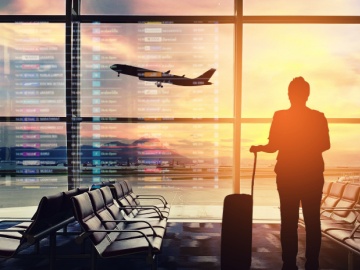
Let’s be honest, traveling by air sometimes gets a little overwhelming due to little hurdles like long queues, flight delays, and unexpected hiccups. But behind the scenes, a quiet transformation is taking place to reduce the stress. Artificial intelligence is making its place and significantly improving the flying experience through biometric boarding, AI-managed queues, and predictive maintenance for aircraft. Just by one facial recognition, AI can speed up your boarding process, update you about flight delays, and even help you select seat preferences, artifical intelligence preferences, and extra luggage allowance. It is making airports function smarter and transforming the way we fly. We tried to list down some of the most significant changes brought by artificial intelligence in the world of aviation.
1. Biometric Boarding: Cutting Down Wait Times
Ever faced the frustration of standing in a security line or the endless wait at the boarding gate? Not anymore! Airports have now started to use AI-powered biometric systems for security purposes to streamline the boarding process and save you time. You don't have to show any physical ID or scan your boring pass or artificial intelligence pass; everything is done through one facial recognition tool. This approach has not only sped up the check-in and boarding process but also improved security by reducing human error and fraud.
2. AI Queue Management: Predicting Wait Times
Airports are now employing AI systems to analyze the strength of the crowd in real time. AI uses the real date and time, data from past flights, weather patterns, data patterns, and even traffic on air routes to anticipate busy time zones. By doing this, it successfully makes a plan of staff deployment as per the needs. Not only that, these high-tech technologies have also been helping passengers to make more informed decisions and suggest smart ways for booking boarding time zones. Boarding and avoiding the rush.
3. Predictive Maintenance: Ensuring On-Time Flights
Although most of us associate artificial intelligence (AI) with airport operations and passenger experiences only, its use also extends to aircraft maintenance. AI can now predict aircraft maintenance as well as its maintenance, which is a game-changer for the aviation world. By helping the airlines prevent delays and cancellations, the maintenance intelligence is benefiting both the provider and the consumer. AI smartly analyzes the data from sensors embedded in an aircraft’s systems to forecast potential failures and/or maintenance requirements. This proactive approach not only reduces the chance of sudden mechanical failures but also ensures passengers' safety before takeoff.
4. AI-Powered Customer Service: Your Personal Travel Assistant
Another area where AI is having a major impact is customer service. Traditional airport help desks used to be crowded and understaffed, making it difficult for customers to get the needed assistance. Major U.S. airports have now installed AI-powered chatbots and virtual assistants so that passengers can fetch real-time updates. These virtual assistants are integrated with airport systems and can handle a wide range of queries, helping travelers navigate the airport efficiently.
AI is undeniably the future of air travel. It is a time-consuming process, though, and due to the complexities associated with air travel, a little challenge is always going to be there. But, with the constant advancements and evolutions in AI, more airports across the U.S. are looking forward to making the process more streamlined and improving the overall flying experience.









